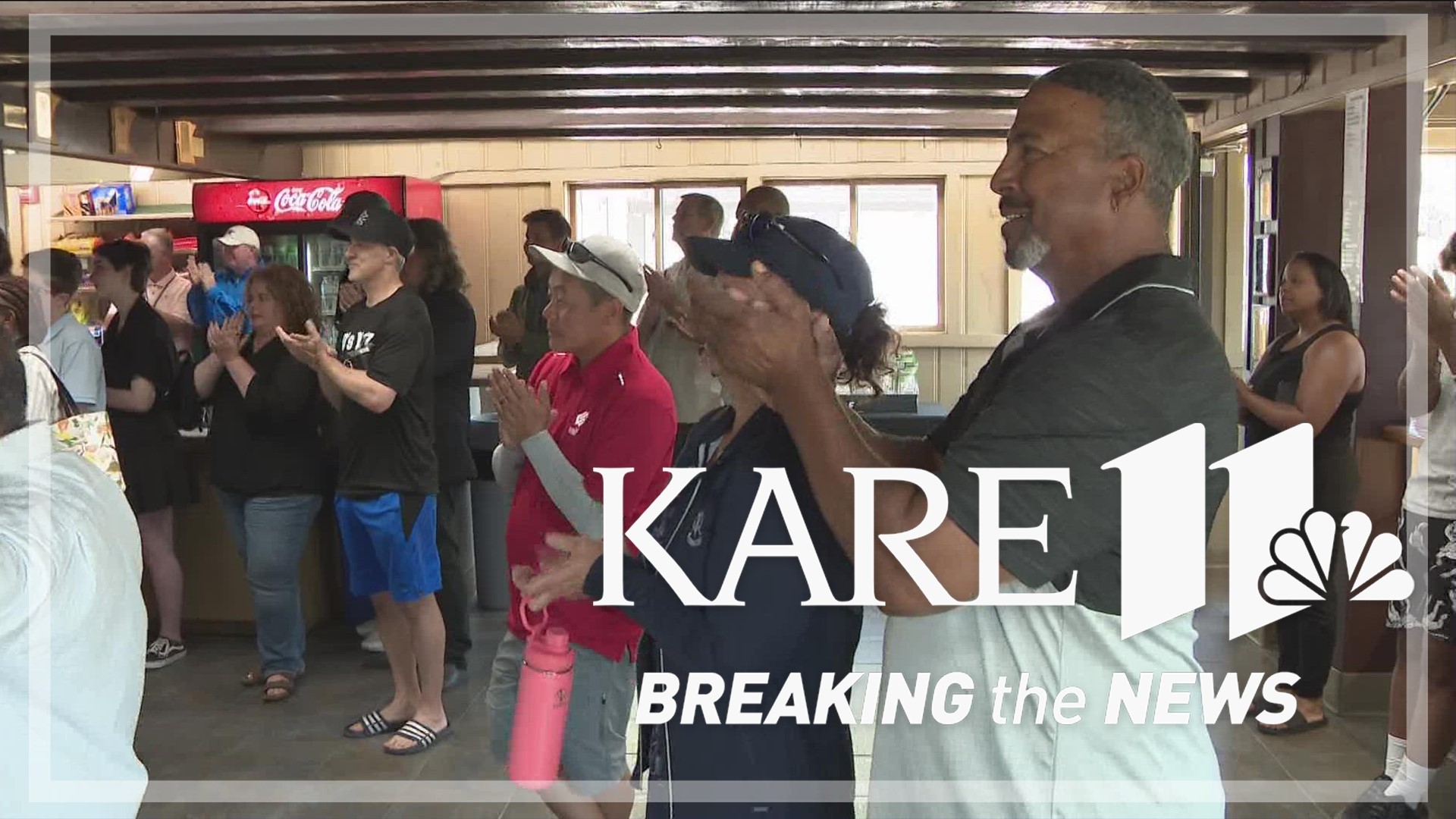MINNEAPOLIS — On a perfect summer day, young Black golfers could be found hitting the links at the Hiawatha Golf Course, one stop for this year's Solomon Hughes Senior Golf Academy.
Program director Greg Jameel told KARE it's about more than just introducing young people to a sport they haven't been exposed to until now.
"Golf is just the catalyst to get them to learn a lot of the things you learn while playing golf," Jameel explained.
"We're also focusing on college prep, personal goals, social emotional development."
The academy's named for the late Solomon Hughes Sr., the first professional level Black golfer in Minnesota. He was a trailblazer who helped break through racial barriers in what was once a completely segregated sport.
The youngsters enrolled in the academy joined the Hughes family and others Monday at the Hiawatha clubhouse, a place that now bears the name of Hughes thanks to a vote by the Minneapolis Park Board last year.
"They were able to learn more about Solomon’s story from his son himself, all those dates and times and the legacy that he’s created and that they are now carrying," Jameel told KARE.
Solomon Hughes Senior won national all-Black tournaments in the United Golfers Association before moving here from Alabama in 1943. He continued to compete and win tournaments while he worked for railroads and airlines to support his family.
"He was a professional golf champion who never bragged about his wins, never complained about his losses," Solomon Hughes Jr. told the crowd in the clubhouse. "He was always willing to help people, he carried himself with respect on and off the course."
But Hughes and other Black golfers, including Ted Rhodes of Tennessee, ran into racial barriers when they tried to enter PGA tournaments here in the late 1940s and early 1950s. Hughes and Rhodes were denied entry into the PGA's St. Paul open in 1948, 1951 and 1952 before finally getting to tee-off with white golfers in a 1953 open.
"The thing that I found amazing is that he never expressed any bitterness about his ability not being recognized, not being able to enter some tournaments that he wanted to," Shirley Hughes, one of Solomon's daughters, told KARE.
"He was such a good golfer. Oftentimes people would invite him to play golf with them at their country club because he could give them pointers because he was so good. But he never expressed a lot of bitterness. It was, 'I'm just gonna keep trying'."
The Hiawatha Golf Course was opened to Black golfers in 1938, but the clubhouse that now bares Hughes's name was still off limits to people who weren't white.
"Here in the Hiawatha Clubhouse is where he made his stride. Up until 1952 Black golfers could come out here and play on this championship 18-hole course but they could not come inside this building," Solomon Jr. recounted.
"My dad thought this was unfair, unjust and very discriminatory. He and few golfers demanded they change that rule and in 1952 that rule was changed to allow golfers to come inside of the clubhouse."
Minneapolis City Council member LaTrisha Vetaw was a member of the Minneapolis Park Board who proposed the name change. She thanked her fellow board members for letting her know about the Hughes legacy, and for working to make it reality.
"This is one part of history that we’re preserving, but this golf course — this entire golf course — is part of his legacy. So, for me the beginning is the name change."
Al Bangoura, the superintendent for the nationally acclaimed Minneapolis Park System, said it was a great moment for him as a Black man to be standing in a clubhouse that honors Hughes.
"As a young boy I would look at Arthur Ashe, and to say things are possible and the doors that were opened up for me to play tennis are the same doors opening up for young people playing golf, and what it means to our community and Brown and Black and BIPOC and the folks that are going to be here using this course and playing."
In 1987, as Solomon Hughes was dying of cancer at Methodist Hospital in St. Louis Park, he asked his daughter to drive him to see the Hiawatha Course one last time. Her sister drove him to Minneapolis, and it wasn't a short trip.
"They sat and were looking at front nine, and she was thinking, 'Okay it's probably time to go back to the hospital.' And he was like, 'Oh, no, no, no we've got to drive around and see the back nine'!"

